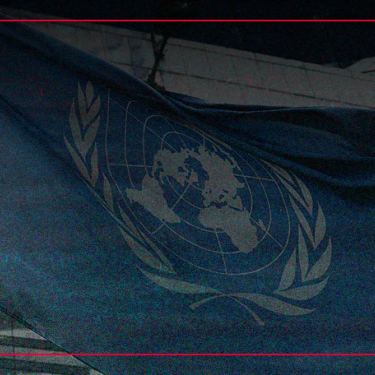RSF urges governments to defend right to information in the proposed Global Digital Compact

United Nations member states are currently negotiating a proposed Global Digital Compact for adoption at the Summit of the Future planned by the UN secretary-general for September 2024. This ambitious initiative must not become a missed opportunity for regulating the global information space, says Reporters Without Borders (RSF).
A “zero draft” of the proposed Global Digital Compact was submitted to UN member states on 5 April by the Swedish and Zambian delegations, which are in charge of facilitating negotiations on the proposed document. In line with the Summit of the Future’s aim to “develop multilateral solutions to face the challenges of our time,” the Global Digital Compact intends to “define common principles for an open, safe and secure digital future for all.”
On the eve of World Press Freedom Day (2 May), governments will meet for a second reading of the proposed text. RSF urges them to use this meeting as an opportunity to protect free, pluralistic, and independent journalism, as well as the right of all citizens to access reliable news and information in the global digital information environment. These notions do not appear anywhere in the current version of the document.
“The lack of regulation of the digital space allows disinformation and propaganda to flourish on the Internet, to the detriment of quality journalism and reliable information. The regulatory framework proposed by the Global Digital Compact is intended to respond to this challenge, which is why we support the UN secretary-general’s initiative. But without strong safeguards for the right to information and journalism, this document will not rise to the democratic challenge. We call on governments to act in favor of the right to information.
RSF urges UN member states, especially the 52 countries that have signed up to the International Partnership for Information and Democracy – committed to promote democratic regulation of the global information and communication space – to incorporate the following recommendations into the draft Global Digital Compact:
1- Member states should commit to increase the legal requirements placed on the largest digital service providers
Purely incentive mechanisms are not enough. The Global Digital Compact should include binding commitments by governments to impose legal obligations on key digital players (including developers, social media platforms and artificial intelligence service providers) to respect fundamental rights, including the right to information.
2- Member states should commit to guarantee access to reliable and pluralistic information through support to journalism
The “zero draft” of the GDC acknowledges that “access to relevant, reliable and accurate information and knowledge is essential for an inclusive, open, safe and secure digital space.” However, it fails to provide for concrete measures guaranteeing such access. The Global Digital Compact should highlight journalism’s fundamental contribution in this regard, and should require member states to commit to ensuring the necessary conditions for the development of reliable and independent journalism online. RSF proposes that the Global Digital Compact explicitly supports media that obtain Journalism Trust Initiative certification by requiring platforms to give prominence to their content i.e. media content produced according to the ethical methods and criteria set by the JTI standard.
3- Member states should commit to rely on the Partnership for Information and Democracy for implementation of the GDC
Noting that the draft Global Digital Compact proposes the creation of new bodies, such as an international scientific panel on AI and an annual global dialogue on AI governance, RSF proposes that monitoring of the implementation of GDC should include already existing cooperation mechanisms such as the Partnership, its Forum and its Observatory on Information and Democracy.
For more information, read RSF’s recommendations to the delegation of the European Union to the United Nations.
